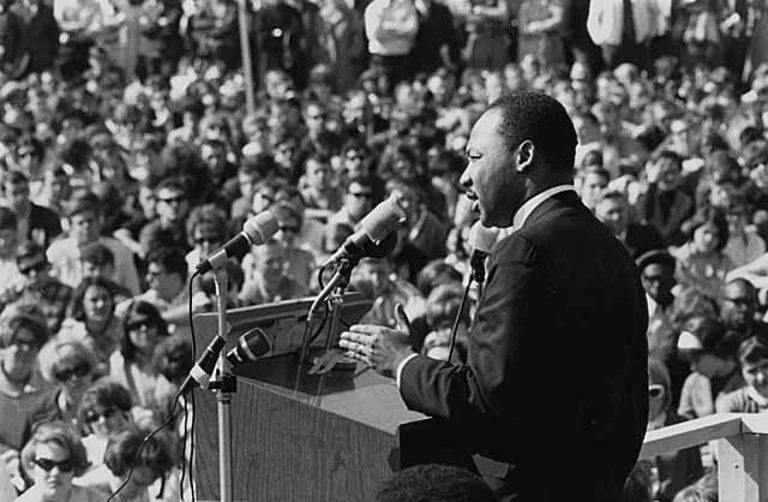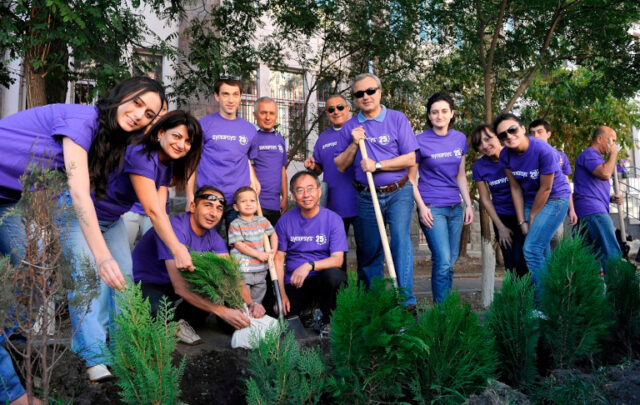A copy of Martin Luther King Jr.’s 1958 autobiography, Stride Toward Freedom, the story of the Montgomery bus boycott, is always fairly close at hand; I reach for it whenever I feel weariness casting a shadow over my courage and resolve. When MLK arrived in Montgomery he (like me) was not a veteran organizer. He was a young aspiring pastor. There were no smart-phones then of course, no internet, no Facebook or Twitter. But starting with a core group of dedicated people, unsure much of the time where their efforts would lead, organize they did. In the end they succeeded in a prolonged act of nonviolent civil resistance that ended segregation on the buses of Montgomery helped to propel the struggle for civil rights in the US and abroad that would follow.
MLK was a brilliant, wise, eloquent and forceful leader; his Christian faith and his study of the work of Mahatma Gandhi helped to ground the civil rights movement in the irresistible precepts of human dignity and non-violence. But the civil rights movement was a movement, and movements require many people, each doing their own unique part to make change happen. MLK played a key role to be sure. But without those who had already been organizing for decades and took him into their fold, then contributed to the development of his grassroots organizing skills, and then the tens, hundreds, thousands, then millions who eventually joined the struggle, it would not have been a movement at all. When it comes to building a movement, we all have an important role to play.
And what does MLK say, specifically, on the role of activism?
By 1967, the year before his assassination, Dr. King delivered a speech called Beyond Vietnam. He was speaking of course of an inhumane and devastating war and not about the inhumane devastation of the earth’s entire climate system, but for me, his words could not be more applicable or to the point.
“We . . . have a continuing task while we urge our government to disengage itself from a disgraceful commitment. We must continue to raise our voices and our lives if our nation persists in its perverse ways . . . We must be prepared to match actions with words by seeking out every creative method of protest possible. These are the times for real choices and not false ones. We are at the moment where our lives must be placed on the line if our nation is to survive its own folly. Every [person] of humane convictions must decide on the protest that best suits [their] convictions. But we must all protest.”
Widespread protest and civil resistance is precisely what this moment calls for as well.
He went on to say that unless we deal with “the far deeper malady within the American spirit” from which the Vietnam War had arisen, if we “ignore this sobering reality” we will “be marching . . . and attending rallies without end.” The only option, he said, was to work for “significant and profound change” at the very foundations of our current system.
And so it seems we are still on MLK’s trajectory, aiming for the significant and profound changes that will help to ensure a livable, indeed thrivable, world for our grandchildren and theirs, where all can live in health with dignity. MLK teaches us that this kind of systemic change will not come without struggle and personal sacrifice. He asks us each to consider the role we will play.
There is much to be learned from those who preceded us in the struggle, and more yet to be learned together as we work our way through the immediate struggle at hand. Being part of this movement with others not only gives me hope and keeps me going, it is helping me to develop the skills that are needed to build the better world we all know is possible. The courage of those who came before me and the courage of my fellow activists gives me courage, and for that I am deeply grateful.
Teaser photo credit: King speaking to an anti-Vietnam war rally at the University of Minnesota in St. Paul, April 27, 1967. By Minnesota Historical Society: https://www.flickr.com/photos/minnesotahistoricalsociety/5355384180/sizes/o/in/photostream/, CC BY-SA 2.0, https://commons.wikimedia.org/w/index.php?curid=19183908





